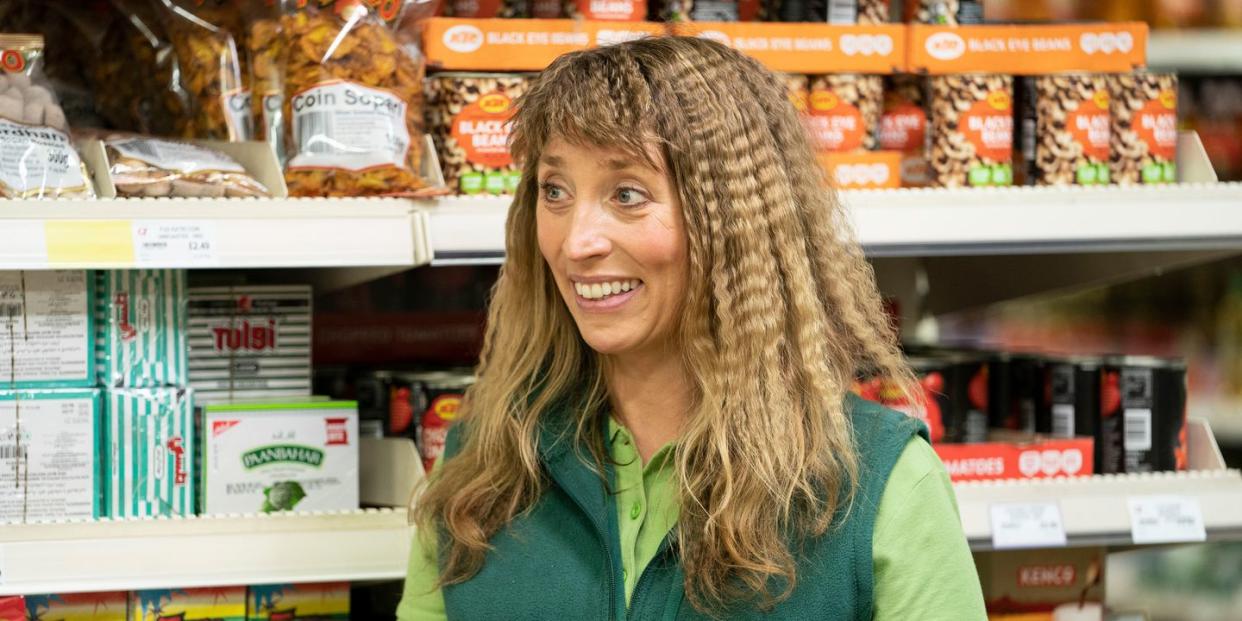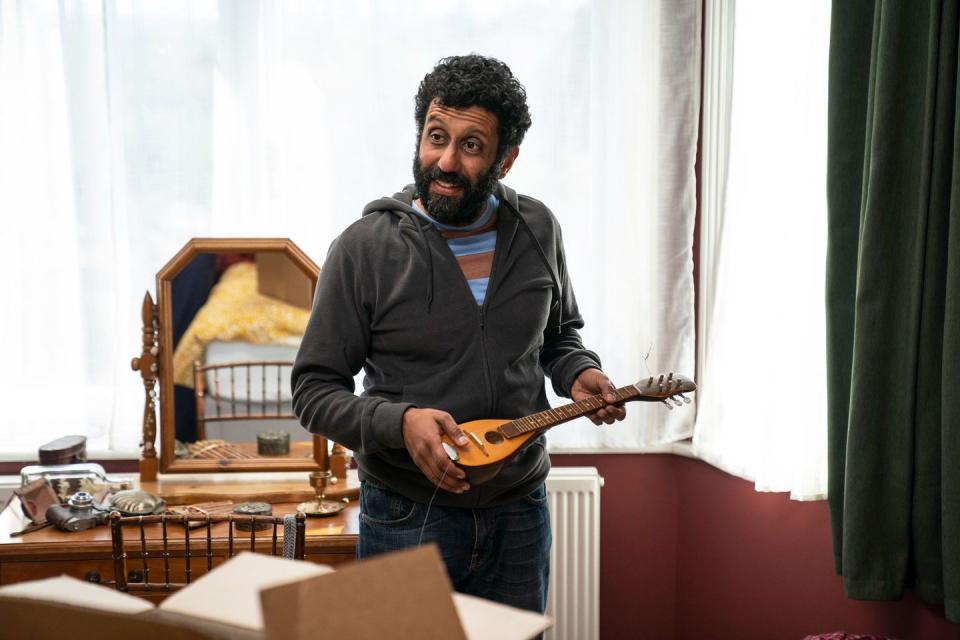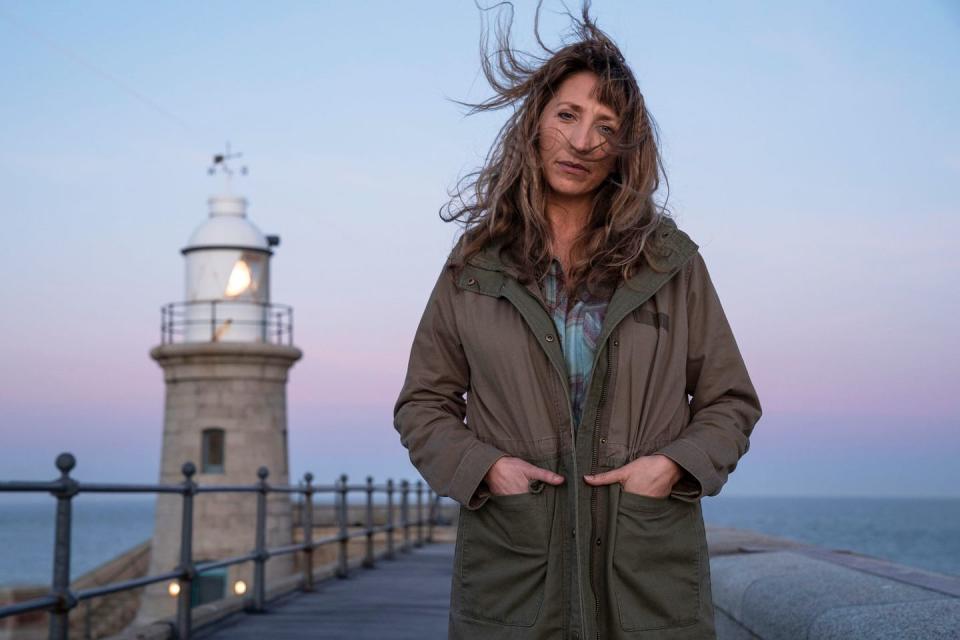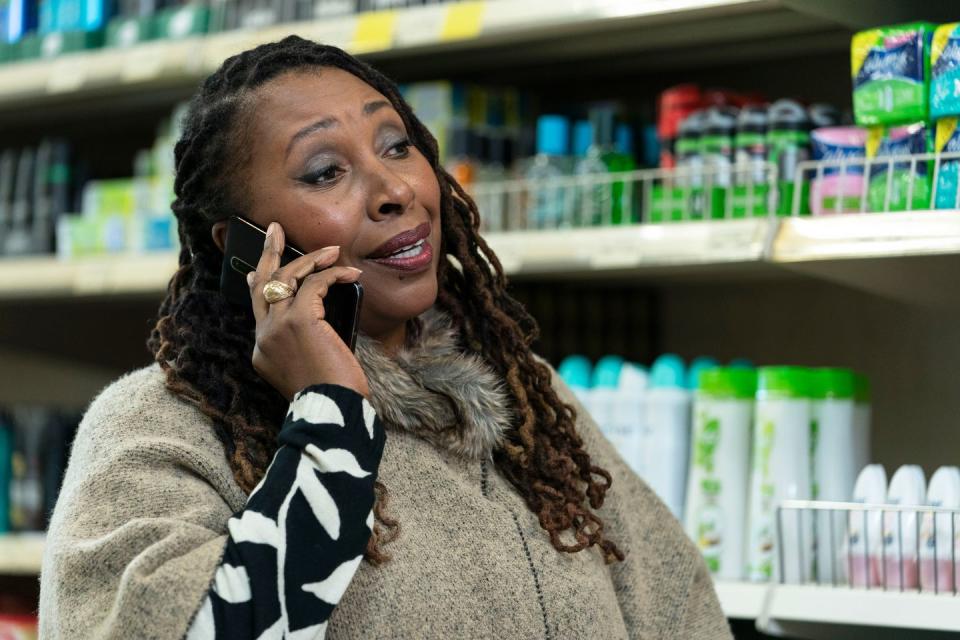Back to Life season 2's ending doesn't give us what we want – and that's okay

Back to Life spoilers follow.
Laura Solon and Daisy Haggard's Back to Life sits in a space that refuses to pledge sole allegiance to either comedy or drama, instead embracing both, often within the same breath. Moments of levity are undercut by the crushing weight of 1,000 chickens coming home to roost, and vice versa, ebbing and flowing like the waters of the Kent coast. Light and dark, elation and trepidation, convention and the absurd exist in tandem – such is life.
Miri and Billy's first kiss, reminiscent of two 13-year-olds behind the school sports block, is followed by an attempt on her life by Lara's father John, whose white-hot grief adds a new and unsettling layer to the show's second season.
An afternoon with a couple of alpacas forces Miri to confront the possibility of another stint behind bars and what that will cost her: a job, a "nice relationship with some sexual activity", a beach holiday and sushi, which she's yet to sample – life, in all its mundane and magical and frivolous glory, now in her hands after almost two decades without, but for how much longer?

Even Back to Life's coastal setting is a cauldron of contradictions, breathtakingly beautiful yet stark and imposing, haunted by the spectre of an unspeakably awful tragedy that perennially darkens its door.
Solon and Haggard's writing never once strays from that path. The pair meticulously maintain the tone and atmosphere established in the first episode right up until season two leaves us with an ice-cream-van jingle that somehow twists the very thought of a 99 into something unwelcome.
Back to Life is, above all else, a study of grief, from the myriad forms it takes to its uncanny ability to soak into every nook and cranny, and that is sustained even in the final moments of season two.
Miri now knows that she will not be held responsible for the death of John, and it should be a joyous moment. She is free to eat raw fish and book a holiday and sit with Billy in his not-so-shiny-or-new ice cream van, her life opening up before her once again. And for a moment, she feels the metaphorical sun on her face, basking in its rays. But that rush of serotonin is short-lived as Miri's consciousness kicks in.

As they speed out of Hythe, their giggles subside as their expressions reflect a more pensive, sombre mood, heightened by a melancholic harmony. Following a momentary lapse, Miri is once again smacked with the steely cold reality of her life as it is now, and not as she once envisaged or hoped, before Lara's passing.
"I know that you suffered a terrible tragedy at my hands but don't you worry, I am paying for that every second of my life," she previously said to John at the lighthouse, before Mandy thwacked him with a waffle maker.
"I will never stop being sorry for the grief that I have caused you."
Miri knows that she cannot keep driving forever, just like she will never be able to outrun her own trauma. Her guilt is a permanent weight around her neck, the whispers and stares a persistent feature of her life, certainly in her hometown, anyway. She will have to turn back at some point and face the music.

There is so much about Back to Life that is absurd, but its handle on the many-headed, long-tendrilled shape of heartache is intensely recognisable. In another life, Miri would be free to eat butties on the beach without knots forming in her stomach. She'd while away the afternoon with Billy inside his second hand motor without the dark mists rolling in and eclipsing her happiness. But the season two ending doesn't permit Miri to forget, and it's all the more striking and sincere for it.
The BBC hasn't confirmed whether Back to Life will return for a third outing but if it does, we'd expect a similar conclusion, even if it does come at the expense of Miri's happiness.
You Might Also Like

 Yahoo News
Yahoo News 
